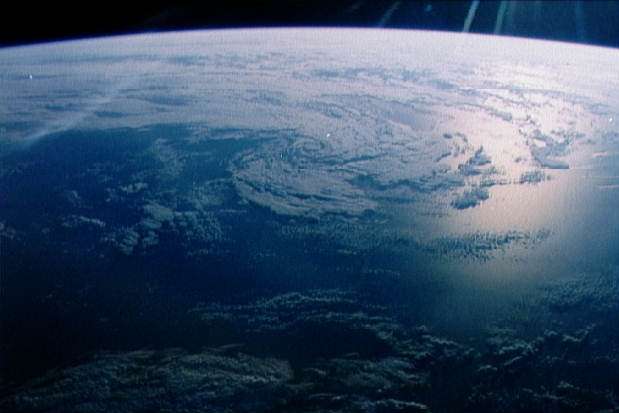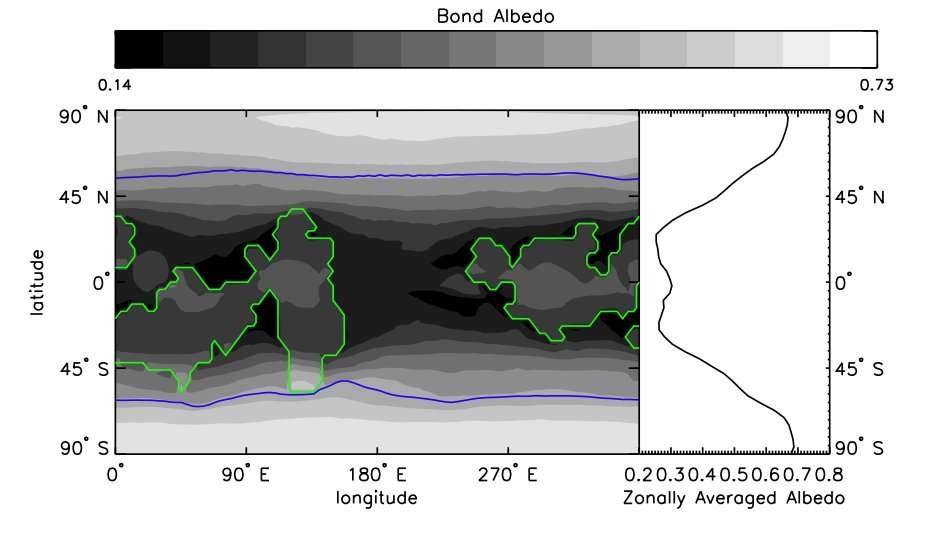It looks like you're using an Ad Blocker.
Please white-list or disable AboveTopSecret.com in your ad-blocking tool.
Thank you.
Some features of ATS will be disabled while you continue to use an ad-blocker.
1
share:
According to the following article, the answer is yes.
Furthermore, researchers have now three possible methods to detect surface liquid on an exoplanet:
1- “rotational color variability,” is based on the fact that oceans are darker and have different colors than other surface types on Earth. Over time, the variations in color of a spatially unresolved planet can betray the presence of liquid water oceans.

2- "polarization": this method relies on the alignment of the light waves being reflected (polarization). Oceans are smoother than other surface types and can align the light waves reflecting from the water's surface, thus polarizing the reflected light. Observations of polarized Earth-shine suggest that variations in polarization may help astronomers detect oceans.

3- "specular reflection " states that oceans are able to reflect light in a manner similar to a mirror, especially at crescent phases. Water can do this because it is much smoother than land, trees or snow, even though the glint spot is small, it makes a planet look abnormally bright at crescent phase. Therefore, if you could keep track of a planet's brightness as it orbits its host star, you might be able to infer the presence of a glinting ocean.

Ten-year averaged map of planetary albedo for the simulation. Green lines indicate the coast of the equatorial continents blue lines show the annually averaged extent of sea-ice. The right panel shows the zonally (longitudinally) averaged albedo profile. Image Credit: Nicolas Cowan / Northwestern University
Read more here: Astrobio
So, next step is to wait for the astronomers to apply these methods in their work at the telescopes time-span allocation around the world.
Who knows? Maybe it will be this way that the discovery of liquid water outside our solar system will be made.
Furthermore, researchers have now three possible methods to detect surface liquid on an exoplanet:
1- “rotational color variability,” is based on the fact that oceans are darker and have different colors than other surface types on Earth. Over time, the variations in color of a spatially unresolved planet can betray the presence of liquid water oceans.

2- "polarization": this method relies on the alignment of the light waves being reflected (polarization). Oceans are smoother than other surface types and can align the light waves reflecting from the water's surface, thus polarizing the reflected light. Observations of polarized Earth-shine suggest that variations in polarization may help astronomers detect oceans.

3- "specular reflection " states that oceans are able to reflect light in a manner similar to a mirror, especially at crescent phases. Water can do this because it is much smoother than land, trees or snow, even though the glint spot is small, it makes a planet look abnormally bright at crescent phase. Therefore, if you could keep track of a planet's brightness as it orbits its host star, you might be able to infer the presence of a glinting ocean.

Ten-year averaged map of planetary albedo for the simulation. Green lines indicate the coast of the equatorial continents blue lines show the annually averaged extent of sea-ice. The right panel shows the zonally (longitudinally) averaged albedo profile. Image Credit: Nicolas Cowan / Northwestern University
Read more here: Astrobio
So, next step is to wait for the astronomers to apply these methods in their work at the telescopes time-span allocation around the world.
Who knows? Maybe it will be this way that the discovery of liquid water outside our solar system will be made.
edit on 12-7-2012 by
elevenaugust because: (no reason given)
new topics
-
Rainbow : Stargazer
Music: 8 minutes ago -
I sleep no more.
Philosophy and Metaphysics: 2 hours ago -
Canada caught red-handed manipulating live weather data and make it warmer
Fragile Earth: 2 hours ago -
Why Files Our Alien Overlords | How We Secretly Serve The Tall Whites
Aliens and UFOs: 4 hours ago -
Curse of King Tuts Tomb Solved
Ancient & Lost Civilizations: 5 hours ago -
What allies does Trump have in the world?
ATS Skunk Works: 5 hours ago
1
